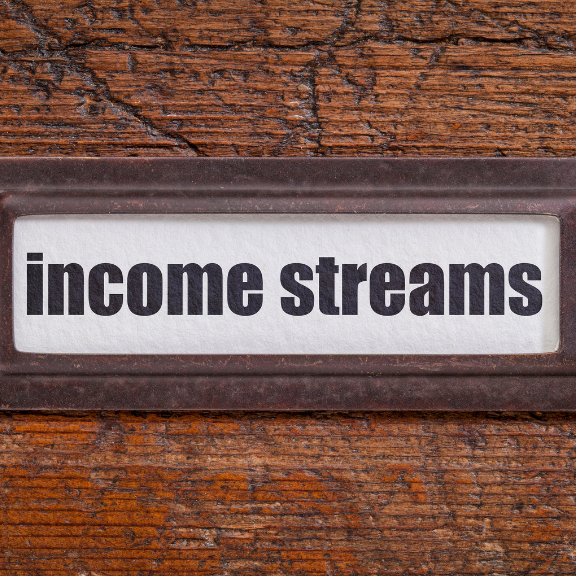Safe Money – Treasuries and CDs
As you get closer to retirement, safe money investments like treasuries and CDs could make up a more significant portion of your portfolio than they have in the past. But, while these financial vehicles won’t incur a loss if the stock market tanks, they could still cause you some financial hardship, such as a loss of purchasing power in the future.With that in mind, you should have a good understanding of how Treasuries and CDs work and whether or not they are the right safe money option for you and for your specific financial objectives.
Understanding Your Safe Money Options
Retirees and pre-retirees usually have a goal of keeping assets safe. That is because losses in portfolio value could result in a lower base for drawing a retirement income stream. One way to protect your portfolio from a downward moving stock market is to invest in “safe” alternatives. These may include treasuries and CDs.But before you make a long-term commitment to these – or any – financial products, you should know the pros and cons of each. That way, you’ll be better prepared for what you can (and can’t) anticipate.
How U.S. Treasuries WorkThe United States government issues Treasury investments. These securities are essentially a “loan” from investors whereby the money is used for financing various government-related projects, such as road construction.Depending on the type of treasury instrument purchased, an investor is repaid either through regular interest payments (with the original principal paid back when the security matures) or by purchasing at a discount and then receiving the total value of the investment in the future.As it pertains to Treasury securities, maturity is the date on which the financial instrument ends. At that time, the investment must either be renewed or “cashed in” and the money given back to the investor. U.S. Treasuries are also affordable for most investors because they can be purchased in denominations of just $100.There are three varieties of Treasuries available in the market. These are:
- Treasury bills
- Treasury notes
- Treasury bonds
A Treasury bill, or T-bill, is a non-interest-bearing (or “zero-coupon”) that is purchased at a discount to its face value and that matures in the short term (within one year or less). The profit of a T-bill is subject to federal income tax, but it is exempt from state and local income taxation.Treasury notes are issued with a variety of maturities, such as two, three, five, seven, or ten years. These investments pay interest on a semi-annual basis. Like T-bills, the interest received from Treasury notes is not subject to tax at the state or local level.A Treasury bond is a long-term security that is issued with a maturity of up to 30 years. Investors in Treasury bonds receive interest twice per year (semi-annually) and receive their original principal back when the bond matures.These bonds can be cashed in early. But in doing so, the investor will usually incur an early withdrawal penalty. The interest on these securities is also subject to federal income tax but no tax at the state or local level. Because of their longer-term maturity, Treasury bonds will typically have higher interest rates than Treasury bills and notes.Although U.S. Treasuries aren’t subject to stock market-related loss, they can have an impact on future purchasing power due to their low rate of interest – even on the longer-term Treasury bonds.U.S. Treasuries can also cause reinvestment risk because after the investment matures, the economy’s then-current interest rates could be lower. As an example, the average 10-year Treasury yield in 1990 was 8.55%, whereas it was below 1% in 2020.So, if an investor purchased a 30-year Treasury in 1990 and then reinvested in 2020, there would be a significant decrease in their return. This is an important factor to keep in mind for those who are relying on Treasuries for long-term or lifetime income purposes.
Pros and Cons of U.S. Treasury Bonds
Treasury Bond AdvantagesTreasury Bond DisadvantagesSafety of principalLow rate of returnSet/known interest rateReduction in purchasing powerNot subject to federal income taxPenalty if cashed out before maturityHigh-quality investment (backed by the U.S. government)Reinvestment riskGovernment bonds may be purchased online, directly from the United States government, by going to https://treasurydirect.gov
Certificates of Deposit (CDs)Certificates of Deposit, or CDs, are offered through banks, credit unions, and brokerage companies. They may also be purchased online via virtual banks and financial firms. These safe money options pay a stated rate of interest for a preset period of time.The interest rate on CDs is typically higher than that of a savings or checking account. However, the return is still considered low compared to the opportunity for growth on other investment vehicles, such as stocks and growth mutual funds.Certificates of deposit generate slightly more interest than savings accounts because investors’ money must remain in the CD for a predetermined time period, up to 10 years.CDs with longer maturities pay higher interest rates than those with shorter durations. There is an early withdrawal penalty, though, if CDs are cashed out before their maturity date. Unlike United States Treasuries, the interest that is generated from CDs is usually taxable at both the federal and state level.As with many other bank-related accounts, CDs are insured by the FDIC (Federal Deposit Insurance Corporation), up to $250,000 per depositor, per ownership category, and per FDIC-insured institution, if the bank goes under.Similar to investments in U.S. Treasuries, CD investors can face reinvestment risk and lost opportunity cost (particularly on CDs that have longer maturities). Therefore, it is important to weigh the tradeoffs between risk and return when determining how safe CDs are for your financial future.
Pros and Cons of CDs (Certificates of Deposit)
CD AdvantagesCD DisadvantagesPrincipal protectionLow rate of interestKnown interest rateEarly withdrawal penaltyFDIC insuredReinvestment risk
Treasury Bonds versus CDs
United States Treasury bonds and CDs are safe investments. This is one of the biggest reasons why they are both attractive to retirees (and pre-retirees) who are seeking safety of principal – particularly during a time of stock market volatility.Bonds and CDs are both also considered to be relatively liquid investments. This means they can be cashed out at any time. If this occurs before they have reached maturity, the bank or other issuing institution will typically charge an early withdrawal penalty. This, in turn, can lead to an even lower rate of return overall.
United States Treasury Bonds versus Certificates of Deposit
U.S. TreasuriesCDsSafety of principalYesYesLiquidityLimitedLimitedRate of returnLowLowEarly withdrawal penaltyYesYesTaxable interestSubject to federal income tax (but not state or local income taxation)YesTax-advantaged growthNo (unless in an IRA or other type of qualified account)No (unless in an IRA or other type of qualified account)Death benefitNoNo
Items to Consider Before Buying a CD or a U.S. Treasury Security
While U.S. Treasuries and certificates of deposit are both considered to be safe funds for retirement, it is important to consider several factors before purchasing one or both of these financial vehicles, such as:
- Risk tolerance
- Your need for growth or income
- Time frame before retirement
- Inflation/future purchasing power
- Reinvestment risk/lost opportunity cost
- Anticipated life expectancy
- Other investments in your portfolio
- Retirement income sources (such as an employer-sponsored pension or Social Security)
- Interest rate on the investment
- Duration of investment/time until maturity
- Amount of the early withdrawal penalty
- Other investment or income alternatives
Alternatives to Treasuries and CDs
Even though United States Treasuries and certificates of deposit can offer some nice benefits, there could be other options that fit your financial needs better. For example, for investors and retirees seeking safe money investments, along with the opportunity to earn a higher rate of return, possible alternatives could include fixed or fixed indexed annuities.Fixed annuities offer a set interest rate, either for a predetermined time period or for the life of the investment. These financial vehicles also typically include an interest rate “floor,” below which the return will never fall.The funds that are inside of a fixed annuity will not be impacted by the stock market. So, even if there is a significant market “correction,” principal in a fixed annuity will be protected. Fixed annuities also offer tax-deferred growth. This means that the gain that takes place in the account will not be taxed until the time of withdrawal. Therefore, over a long period of time, growth can compound exponentially.Fixed indexed annuities are a type of fixed annuity. The primary difference is the way in which the returns are generated. For instance, a fixed indexed annuity tracks one or more underlying market indexes, such as the SP 500.When the index performs well in a given contract period – such as one year – a positive return will be credited to the annuity, typically up to a preset maximum, or “cap.” When the index performs poorly in contract years, there is no loss in the value of a fixed indexed annuity contract. Rather, the account is simply credited with a guaranteed minimum, which is typically in the range of 0% to 2%.As a bonus, fixed and fixed indexed annuities can provide you with an ongoing income stream that lasts for a preset period of time – such as 10 or 20 years – or even for the remainder of your lifetime, no matter how long that may be.Some annuities offer a joint income option where two people, such as a husband and wife, can receive an incoming cash flow until the second individual’s death. This type of guaranteed retirement income can help alleviate one of the biggest fears on retirees’ minds – running out of money while they still need it.Fixed and fixed indexed annuities may also offer some additional features, such as a(n):
- Death benefit
- Terminal or chronic illness waiver
- Long-term care waiver
Many annuities offer a death benefit. If the annuitant (i.e., the recipient of the annuity’s income) dies, a named beneficiary can receive the remainder of the funds that are in the contract. It is important to note that these funds may be taxable to the beneficiary, unlike a life insurance death benefit. In some cases, an annuity death benefit is automatically included, while it could require an additional premium in others.With a terminal or chronic illness waiver, the owner or annuitant may be able to access some – or possibly even all – of the funds in the contract without penalty, even during the annuity’s surrender charge period.The long-term care waiver is similar in that no penalty is incurred if money is accessed from the annuity, provided that the owner or annuitant requires long-term care for a minimum period of time (such as 90 days).In the case of the annuity waivers, it is possible that taxes will still be due if the money that is withdrawn has not yet been subject to income taxation. Also, there are instances where an additional 10% IRS “early withdrawal penalty” is charged if the owner/annuitant takes funds out before they have turned age 59 .
Which Safe Money Options are Right for You?
Even with all of the benefits offered on “safe” money options like Treasuries and CDs, these financial vehicles may not be right for everyone. Therefore, it is recommended that you discuss your short- and long-term financial objectives with a specialist in safe money retirement income planning.If you would like to learn more about keeping your money safe while at the same time taking advantage of retirement income or growth strategies, feel free to contact us directly at [email protected]. We look forward to assisting you.













